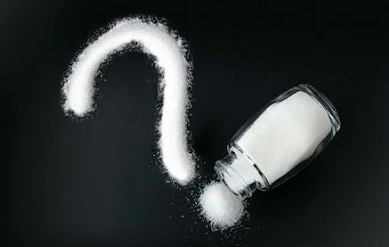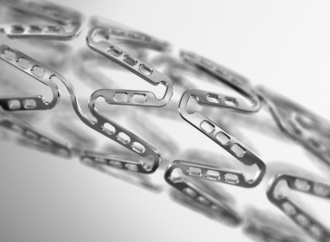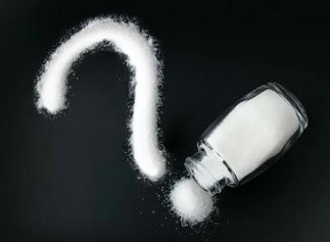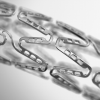The review by Yusuf and colleagues proclaims that ‘there is no convincing evidence that moderate intake of sodium (3-5 g /day*) is associated with increased risk of CVD compared with lower levels of sodium consumption’. Through this simple statement, a large body of research including biomedical, evolutionary, epidemiologic and clinical science is summarily dismissed. In
The review by Yusuf and colleagues proclaims that ‘there is no convincing evidence that moderate intake of sodium (3-5 g /day*) is associated with increased risk of CVD compared with lower levels of sodium consumption’.
Through this simple statement, a large body of research including biomedical, evolutionary, epidemiologic and clinical science is summarily dismissed. In contrast to the claim by Yusuf and his 3 co-authors, a vast array of leading cardiovascular and nutritional experts, national and international health organizations, including the World Health Organization (WHO), a very large and growing number of highly regarded scientific organizations and governmental organizations including the United Nations (UN) are convinced that salt reduction in this range is one of the most effective means to improve population health (1-9). It is not my intent to comprehensively review the large body of evidence much of which has already been reviewed this year. To my knowledge only one review endorsed by a credible scientific organization did not conclude there was enough evidence to reduce dietary sodium below the levels regarded as moderate by Yusuf. That organization reviewed sodium reduction as a clinical (rather than public health) intervention and required randomized controlled trials with ‘hard outcomes’ in its terms of reference to support recommendations. Many organizations have utilized standardized and systematic approaches as well as more traditional review processes in reviewing the scientific evidence. While additional high quality research on dietary sodium is desired, sodium reduction efforts should be implemented with haste given the strength of existing evidence and millions of lives at risk each year.
Yusuf and colleagues are not alone as a few other researchers (usually whose personal research findings have produced results inconsistent with institutional reviews or who are associated with the food or salt industries) have focused attention on inconsistencies in evidence on dietary sodium and claim there is controversy. The individuals who are dissident are usually highly vocal and their messages often get reinforced by widespread publicity in both the popular press, and more recently, scientific journals. The methodology employed in the review by Yusuf’s group is similar to many of the previous critics of salt reduction in (1) not being a systematic review (and in this case there is not even a pretense of being comprehensive); (2) not being sponsored by a recognized scientific body; (3) selectively highlighting inconsistent studies rather than totality of evidence; (4) dismissing or ignoring substantive science that does supports salt reduction; (5) citing research findings that find salt reduction harmful as facts while not disclosing the studies major design and methodological flaws and; (6) not clearly indicating how divergent their opinion is from highly regarded scientific organizations. It is incredibly easy to make any area of research controversial and to create unlikely hypothesis by focusing on isolated findings, however such approaches should be heavily censored by peer review journals and viewed skeptically by other scientists.
* 3-5 g/sodium per day = 7.5 to 12.5 g salt per day, sodium is used throughout this commentary
Nevertheless, people with dissenting views are very healthy for furthering science and clinical medicine and need to be systematically supported. Those who are of dissenting views however should have an obligation to conduct an appropriate unbiased systematic review. Where dissenters conduct research there is an even great obligation to become familiar with existing literature and to utilize appropriate research methods, and to interpret their research in the context of the scientific literature that is already available.
In responding to the request to rapidly address Yusuf and colleagues review, I write this informal, selective and largely unreferenced commentary. I highlight some areas where casual readers may misinterpret the science based on the select material in the Yusuf and colleagues review. However, there are other areas of disagreement where Yusuf and colleagues make statements that are not well supported by the totality of science that I have not well addressed. Examples include the insinuation that treating mild hypertension is not effective and that ‘RAAS’ blockers have added advantages in treating hypertension relative to other drugs and specifically those that stimulate the RAAS system. Such hypotheses are also supported by isolated research and have been refuted by comprehensive literature reviews. Although I support a call for high quality randomized controlled trials, I conclude by simply highlighting isolated results of a few simple randomized controlled trials led by Dr Yusuf’s group to illustrate the weaknesses in this selective approach to science and that consideration of isolated research can undermine any research field. A more formal response with multiple authors may be forthcoming, if there is an interested journal but sadly journals seem more interested in controversy than the highly repetitive comprehensive analyses on dietary sodium that seem to be published every year with the same conclusions to lower dietary sodium.
Biomedical science has established mechanisms whereby higher than physiological levels of dietary salt cause hypertension, vascular and cardiac damage, asthma, osteoporosis, gastric cancer and renal stones (importantly and not surprisingly lower than physiological levels of salt intake also cause harm). Notably, animal research has shown that higher than physiological levels of salt cause hypertension, cardiovascular disease (independent of blood pressure), increased asthma severity, loss of calcium from bone and is a pro carcinogen for gastric cancer (10-13). Evolutionary science has shown that living organisms (including humans) slowly genetically change over many generations to adapt to their environment and that this process is critical to species survival. Humans evolved to adapt to ‘physiological’ levels of sodium intakes in the range of 100s of mg/day and have only been exposed to diets in the range of 3000 to 10,000 mg/day in a time frame far too short for evolutionary adaptation. Given its time course, evolutionary science is not often considered in clinical medicine but is fundamental to understanding biological science. Epidemiological studies show little increase in blood pressure with age, and that hypertension and cardiovascular disease is rare in societies consuming less than 1200mg sodium per day. Blood pressure increases in those migrating from areas of low sodium consumption to areas of high consumption. Randomized clinical trials show decreased blood pressure with decreased salt consumption down to levels of 1200 mg/sodium per day with no indication that blood pressure would not be further reduced with lower levels of consumption (14). Extrapolation of the findings to the global population suggests that, even with a conservative estimate of 1 billion people with hypertension, that 300 million people have sodium induced hypertension. Best evidence estimates that there are 3.1 million cardiovascular deaths annually related to dietary sodium (15). The epidemiological studies that Yusuf and colleagues have used as a basis of their hypothesis have been very recently, systematically and comprehensively reviewed by many world leading experts with external consultation under the auspices of the WHO and are also consistent (although for some endpoints not definitively so) with reductions in cardiovascular disease with sodium consumption lowered to less than 2 gm/day (2). Randomized controlled trials of sodium reduction in the range under consideration by Yusuf and colleagues are inconclusive on cardiovascular endpoints being slightly underpowered but the point estimates of reduced cardiovascular disease are greater than that predicted, or similar to that predicted, by blood pressure reduction. Similarly, in Finland, where dietary salt was reduced in the range Yusuf’s group indicates has no evidence (sodium reduced from 5.6 gm to 3.6 gm sodium/day), there were over 60% reductions in stroke death as well as similar reductions in coronary heart death (16). The reduction in stroke death was not surprisingly paralleled by reduced blood pressure (while other risks for hypertension were mainly increasing).
Assessing usual salt intake is challenging as stated in Yusuf’s and colleagues review but ignored in their analysis of the ONTARGET study. A spot urine sample has been used to estimate average population sodium consumption but the Expert Group on Salt Reduction of the Pan American Health Organization and other experts caution that the validity of this approach is currently uncertain and recommend further research before this approach is adopted (17). Various calibration formula have also been developed to relate sodium in spot urines to 24 hour urine samples in populations (the current ‘gold’ standard) but similarly these approaches have not had their utility well defined and are not currently recommended. Calibration formulas are undoubtedly influenced by differences that impact urinary sodium concentration (e.g. time of day, usual water consumption, temperature, humidity, disease and drug therapies etc.). These issues relate to the ability to define a population’s average sodium intake from urinary sodium excretion and do not relate to assessing an individual’s salt intake. Nor do they relate to assessment of sodium intake in disease or where drugs are ingested that impact sodium excretion.
Variation in an individuals’ daily salt consumption requires multiple (up to 10) 24 hour urines to accurately define intake. The use of spot urines is likely to greatly accentuate inaccuracies in assessing individual salt intake and, to my knowledge; no one has yet attempted to define the use of spot urines to assess the usual intake of individuals. Hence, relating individual variation in salt intake to individual outcomes using single urine assessments, even with a single 24 hour urine sample, is very challenging and strongly favors the null hypothesis.
Yusuf’s group used single spot urine sodium as an estimate of individual salt intake in ONTARGET participants where almost 30% were taking diuretics and many had cardiovascular disease. The estimated individual sodium intake was examined in relationship to outcomes. Those who were ingesting diuretics shortly before spot urine collection (during active naturesis) or before ingestion of the widely used short acting diuretics (during active sodium reabsorption) or at a remote time would all have markedly different estimates of sodium intake even if ingesting the same level of dietary sodium. Further, the ONTARGET description fails to indicate the timing of diuretic ingestion to spot urine collection. While a calibration equation has been assessed by a simple correlation coefficient in a small group of Japanese patients with cardiovascular risk factors and treatments who were on a controlled sodium diet, it has not been validated in a population of people with cardiovascular disease similar to that of ONTARGET. The ONTARGET analysis was highly critiqued by 14 leading experts for the method of assessing sodium intake and for a multitude of other methodological and interpretative issues in a 10 page report. Regardless of the critique, its findings seem to form the basis of the hypothesis in Yusuf and colleagues review.
The nuances of using dietary surveys to estimate sodium intake is similarly complex, highly dependent on the quality of data on sodium content of food, of the survey accuracy of what was eaten and is of utility in assessing total salt consumption only in settings where the vast majority of sodium is ingested in foods of known salt content (i.e. not useful for assessing total sodium intake when most sodium is added at home in cooking or at the table but can be accurate in setting where data is of high quality and the source of salt is nearly all from processed foods). The utility of salt ingestion assessment methods has been comprehensively reviewed (http://new.paho.org/hq/index.php?option=com_content&view=article&id=2015&Itemid=1757). Many of the methods for assessing dietary sodium are still early in evolution or frail, but have been used to assess relationships between dietary sodium and cardiovascular outcomes with the complexities favoring a lack of impact of salt reduction. Understanding the utility of the methods and their strengths and weaknesses in different dietary settings is important to trial design to avoid incomprehensible or paradoxical results and improbable hypothesis. Challenges in assess sodium intake from food surveys also strongly favors the null hypothesis of no effect of sodium on outcomes.
The review by Yusuf and colleagues seem to conjecture that genetic differences in salt sensitivity of populations might account for different study outcomes. Such a hypothesis has been previously put forward to explain greater hypertension and worse vascular outcomes of people of African American descent. However current methods of assessing the phenotype of salt sensitivity have utilized marked abrupt short term changes in salt intake and or diuretics and or saline infusion, are poorly reproducible with much of the variation in salt sensitivity likely accounted for by normal variation in blood pressure and, while useful for attempting to assess genotypes linked to salt sensitivity, the data do not currently relate to long term differences in salt ingestion/blood pressure. Similarly, a review indicating marked effects of sodium reduction on the lipids, catecholamines and RAAS system included short term marked changes in sodium balance, which are not relevant to public health, while analysis conducted under the auspices of the WHO included only longer term studies and found little to no change in these parameters. Yusuf and colleagues cite the review that includes short term studies irrelevant to public policy to support their hypothesis.
In their review, Yusuf and colleagues points out a few recent epidemiological studies that have not found relationships between dietary sodium and outcomes and that have been conducted in people with diabetes and or cardiovascular disease. These were included at face value in the recent WHO review that strongly support sodium reduction to less than 2g/day. However, extensive review of these trials have found multiple methodological explanations and in particular a strong likelihood for reverse causation (where people with more substantive disease follow a health behavior such as salt reduction more extensively resulting in a false association of the health behavior and the adverse outcome). Nevertheless, the hypothesis that some patient populations might be harmed by interactions between disease, pharmacotherapy and salt reduction is plausible. Logically the people harmed are predicted to be those who are physiologically sodium deplete (i.e. those who take excessive diuretic doses, or who are excessively treated with hypotensive drugs (requiring increased vascular volume to maintain circulation) as well as those with acute volume loss (e.g. diarrhea ).
A tenant of the treatment of heart failure is to achieve ‘euvolemia’ (even to the extent no definitive randomized trial has assessed diuretics versus no diuretics). Excess vascular volume causes symptoms and signs of heart failure and is likely to result in poor outcomes. Hypovolemia causing hypotension is also associated with symptoms, signs and poor outcomes. Hence euvolemia is considered a cornerstone of heart failure treatment. That said, one group of investigators whose studies are cited by Yusuf and colleagues have utilized high potency diuretics (in doses from clinically relevant up to 1000mg furosemide a day) to achieve ‘euvolemia’ and then studied the effects of additional salt and water restriction (i.e. by design created hypovolemia). Rather than rationally concluding the trial was designed to cause hypovolemia and its known adverse effects, the trial investigators and Yusuf and colleagues concluded salt reduction is harmful. Many other aspects of the heart failure trials are at best puzzling, however none of the features critical to understanding the results are mentioned by Yusuf and colleagues.
Other studies have assessed (often high doses of) ACE Inhibitor and or angiotensin receptor blocker in people with cardiovascular disease and diabetes, some finding an association with low blood pressure and poor outcome. In spite of the proven marked potentiation of blood pressure lowering of an angiotensin receptor blocker or ACE inhibitor with lower salt diets, Yusuf and colleagues have implicated lower salt diets (based on spot urine sodium in ONTARGET) as the likely casual agents of poor outcomes. Ignored is that the ONTARGET design likely over treated people at high risk for adverse hypotension related outcomes with high doses of one or more hypotensive drugs that are highly potentiated by low salt intake and that the design caused adverse events. A basic tenet of pharmacology and of clinical medicine is to titrate drugs to clinical or biological endpoints especially in vulnerable populations. These trials used fixed high dose in a vulnerable population and perhaps it is not surprising that in some trials more were not harmed. It does not seem rationale, to me, to advocate high salt diets so high doses of drugs can be administered to prevent adverse outcomes caused by high salt diets which is a logical extension of the argument of Yusuf and colleagues.
The Yusuf and colleagues review also suggests that public policy to reduce dietary salt differs from that of tobacco as tobacco reduction has overwhelming consistent evidence to support it. The history of efforts to reduce tobacco use is remarkably similar to that of efforts to reduce dietary salt. Dissident investigators with discrepant results and opinions were actively paraded publically by the tobacco industry that strongly opposed efforts to reduce tobacco consumption. It required decades of research and advocacy for the ‘overwhelming consistent evidence’ to be accepted with several highly vocal opponents. At the time, efforts to reduce tobacco consumption were indicated to be controversial and the impediment to implementing the science was associated with millions of lives lost. The health implications of interventions to reduce tobacco and salt are also remarkably similar with best evidence suggesting excess salt causes 3.5 million deaths/year. Yusuf and colleagues are defining their place in the history of salt reduction. Their hypothesis is highly unlikely to be true and millions of lives are on the line. Public health in general utilizes best evidence and rarely has the benefit of randomized trials (e.g. seat belt use, alcohol restrictions for driving, sidewalks and cross walks on roads).
One area of agreement I have with the review authors is that large high quality randomized controlled trials are desirable to define the impact of salt reduction. Such a trial needs to have an effective long term salt reduction intervention and a design that accounts for complexity, accurately assessing blood pressure, excluding drugs that cause salt and water loss and drugs that interact with salt reduction to cause hypotension. Stratification with pre specified subgroup analysis may be used to account for very likely harmful effects of excessive drug therapy but at least, to me, the rationale solution to excessive drug doses in those who eat less salt is to use less drug as opposed to eating more sodium. One randomized controlled trial of salt reduction headed by investigators who are familiar with the scientific field, and public health, is funded and underway. Notably the great difficulty in implementing an effective long term salt reduction intervention has hindered large randomized trials in the past. Long term clinical interventions (education and advice) have been ineffective in reduction dietary sodium.
As this commentary indicates, appropriate trial design will be critical. Simple randomized control trial designs not only clarify they can cause confusion. The HOPE trial results demonstrated surprisingly large clinical benefits of an ACE inhibitor, ONTARGET showed an ACE inhibitor produced similar results to that of an angiotensin receptor blocker, and TRANSCEND showed no benefit of an angiotensin receptor blocker. A high quality randomized controlled trial is now needed to understand the results of the previous three trials. Such a trial might not be so ‘simple’ that one cannot accurately assess vulnerable populations, the impact of drug dose, dietary salt intake, blood pressure, the impact of timing of drug ingestion (chronopharmacology), excessive diuretic use, genetic background and other potential factors that may explain the discrepant results to further scientific and clinical understanding.
I hypothesize that over dosing pharmacotherapy (RAAS blockers and diuretics in particular) can harm or kill people regardless of salt consumption, but that reductions in dietary salt can make people more susceptible to these drugs. The answer is likely not to ensure high salt diets to make these drugs safer but using safe doses of the drugs and using them in settings where they are likely to do more good than harm. Clinicians understand this concept and titrate drugs in routine practice. In considering clinical trials, ethics boards should more carefully assess whether it is still reasonable to allow force titration of hypotensive drugs in people at high risk for adverse hypotensive events given the rather obvious hypotensive down side to hypotensive pharmacotherapy. Similarly, ethics boards should assess whether it is ethical to administer remarkably high diuretic doses and then add salt reduction or any other intervention that is intended to cause hypovolemia, as these interventions seem designed to cause harm and not to assess the impact of salt reduction. The above two paragraphs are not intended to create a new controversy but it illustrate that controversies can be easily created.
There is little evidence that consuming sodium above the levels naturally found in foods (100’s of mg of sodium/day) is safe and much evidence to suggest it is harmful. While few find this controversial, the ones that do create a lot of publicity are potentially contributing to delays in salt reduction and risking millions of lives. At a minimum, increased sodium consumption is causing 100 of millions to have hypertension with billions of dollars in costs. It is however highly improbable that the increased blood pressure caused by sodium is innocuous or beneficial and that 10 fold increases in dietary sodium over physiological requirements is healthy.
This commentary is more critical and less well referenced than I would desire but should provide readers some understanding of the basis of sodium controversy and why some public health advocates are losing patience with dissenting scientists who do not seem to base their dissention on rigorous science but on less tangible and understandable values.
Norm Campbell MD, Professor of Medicine, Physiology and Pharmacology and Community Health Sciences, and the Libin Cardiovascular Institute, the University of Calgary, Canada
Reference List
(1) Legetic B, Campbell N. Reducing salt intake in the Americas: Pan American Health Organization actions. J Health Commun 2011; 16 Suppl 2:37-48.
(2) World Health Organization. WHO Guideline: Sodium intake for adults and children. Report , i-46. 2012. Geneva, Switzerland, WHO Press.
(3) Whelton PK, Appel LJ, Sacco RL, Anderson CAM, Antman EM, Campbell N et al. Sodium, Blood Pressure, and Cardiovascular Disease: Further Evidence Supporting the American Heart Association Sodium Reduction Recommendations. Circulation 2012;1-10.
(4) Cappuccio FP, Capewell S, Lincoln P, McPherson K. Policy options to reduce population salt intake. BMJ 2011; 343:d4995.
(5) Webster JL, Dunford EK, Hawkes C, Neal BC. Salt reduction initiatives around the world. J Hypertens 2011; 29(6):1043-1050.
(6) Appel LJ, Frohlich ED, Hall JE, Pearson TA, Sacco RL, Seals DR et al. The importance of population-wide sodium reduction as a means to prevent cardiovascular disease and stroke: a call to action from the American Heart Association. Circulation 2011; 123(10):1138-1143.
(7) Panel on Dietary Reference Intakes for Electrolytes and Water, Standing Committee on the Scientific Evaluation of Dietary Reference Intakes. Dietary Reference Intakes for Water, Potassium, Sodium, Chloride and Sulfate. Scientific Evaluation of Dietary Reference 2004;1-640.
(8) Scientific Advisory Committee on Nutrition. Salt and Health. Scientific Advisory Committee on Nutrition 2003 , 1-134. 2003. Norwich, UK, The Stationery Office.
(9) He FJ, Campbell NRC, MacGregor GA. Reducing salt intake to prevent hypertension and cardiovascular disease. Special Report. Rev Panam Salud Publica 2012; 32(4):265-300.
(10) Van Vliet BN, Montani JP. The time course of salt-induced hypertension, and why it matters. Int J Obes (Lond) 2008; 32 Suppl 6:S35-S47.
(11) Kanbay M, Chen Y, Solak Y, Sanders PW. Mechanisms and consequences of salt sensitivity and dietary salt intake. Curr Opin Nephrol Hypertens 2011; 20(1):37-43.
(12) de Wardener HE, MacGregor GA. Harmful effects of dietary salt in addition to hypertension. J Hum Hypertens 2002; 16(4):213-223.
(13) Meneton P, Jeunemaitre X, de Wardener HE, MacGregor GA. Links between dietary salt intake, renal salt handling, blood pressure, and cardiovascular diseases. Physiol Rev 2005; 85(2):679-715.
(14) He FJ, MacGregor GA. How Far Should Salt Intake Be Reduced? Hypertension 2003; 42(6):1093-1099.
(15) Lim SS, Vos T, Flaxman AD, Danaei G, Shibuya K, Adair-Rohani H et al. A comparative risk assessment of burden of disease and injury attributable to 67 risk factors and risk factor clusters in 21 regions, 1990-2010: a systematic analysis for the Global Burden of Disease Study 2010. Lancet 2013; 380(9859):2224-2260.
(16) Karppanen H, Mervaala E. Sodium Intake and Hypertension. Prog Cardiovasc Dis 2006; 49(2):59-75.
(17) Ji C, Sykes L, Paul C, Dary O, Legetic B, Campbell NRC et al. Systematic review of studies comparing 24-hour and spot urine collections for estimating population salt intake. Rev Panam Salud Publica 2012; 32(4):307-315.
40 comments
 IASC
IASC 




































40 Comments
KATHRINE MELNICK
noviembre 9, 2021, 10:12 pmBEST URGENT EFFECTIVE LOVE SPELL TO GET YOUR EX/HUSBAND/WIFE BACK FAST AND TO SAVE YOUR MARRIAGE NOW CONTACT LORD ZULU ON WHATSAPP DIRECTLY +1 (424) 361‑7554.
Hi everyone I’m here to testify of a great and powerful spell caster called Lord Zulu. I was so confused and devastated when my husband left me without a word, I needed him back desperately because I loved him so much. So a friend of mine introduced me to this powerful spell caster who had helped her in getting her lover back, so I contacted him and he promised that in less than 72 hours he will come back to me. After I did all he asked, to my greatest surprise my husband who had refused to speak with me came to my house and asked for forgiveness for all he had made me go through and now we are living happily together, if you have any relationship problem I will advise you contact him for your testimonies. Below are his contact details. Contact him on WhatsApp @ +1(424)361‑7554.
BLOGSPOT: allsupremepowersolutionhome.blogspot.com
EMAIL: Allsupremepowersolutionhome@gmail.com
WEBSITE;http://allsupremepowersolutionhom.website2.me
REPLYKATHRINE MELNICK
noviembre 9, 2021, 10:12 pmBEST URGENT EFFECTIVE LOVE SPELL TO GET YOUR EX/HUSBAND/WIFE BACK FAST AND TO SAVE YOUR MARRIAGE NOW CONTACT LORD ZULU ON WHATSAPP DIRECTLY +1 (424) 361‑7554.
Hi everyone I’m here to testify of a great and powerful spell caster called Lord Zulu. I was so confused and devastated when my husband left me without a word, I needed him back desperately because I loved him so much. So a friend of mine introduced me to this powerful spell caster who had helped her in getting her lover back, so I contacted him and he promised that in less than 72 hours he will come back to me. After I did all he asked, to my greatest surprise my husband who had refused to speak with me came to my house and asked for forgiveness for all he had made me go through and now we are living happily together, if you have any relationship problem I will advise you contact him for your testimonies. Below are his contact details. Contact him on WhatsApp @ +1(424)361‑7554.
BLOGSPOT: allsupremepowersolutionhome.blogspot.com
EMAIL: Allsupremepowersolutionhome@gmail.com
WEBSITE;http://allsupremepowersolutionhom.website2.me
REPLYKATHRINE MELNICK
noviembre 9, 2021, 10:12 pmBEST URGENT EFFECTIVE LOVE SPELL TO GET YOUR EX/HUSBAND/WIFE BACK FAST AND TO SAVE YOUR MARRIAGE NOW CONTACT LORD ZULU ON WHATSAPP DIRECTLY +1 (424) 361‑7554.
Hi everyone I’m here to testify of a great and powerful spell caster called Lord Zulu. I was so confused and devastated when my husband left me without a word, I needed him back desperately because I loved him so much. So a friend of mine introduced me to this powerful spell caster who had helped her in getting her lover back, so I contacted him and he promised that in less than 72 hours he will come back to me. After I did all he asked, to my greatest surprise my husband who had refused to speak with me came to my house and asked for forgiveness for all he had made me go through and now we are living happily together, if you have any relationship problem I will advise you contact him for your testimonies. Below are his contact details. Contact him on WhatsApp @ +1(424)361‑7554.
BLOGSPOT: allsupremepowersolutionhome.blogspot.com
EMAIL: Allsupremepowersolutionhome@gmail.com
WEBSITE;http://allsupremepowersolutionhom.website2.me
REPLYKATHRINE MELNICK
noviembre 9, 2021, 10:12 pmBEST URGENT EFFECTIVE LOVE SPELL TO GET YOUR EX/HUSBAND/WIFE BACK FAST AND TO SAVE YOUR MARRIAGE NOW CONTACT LORD ZULU ON WHATSAPP DIRECTLY +1 (424) 361‑7554.
Hi everyone I’m here to testify of a great and powerful spell caster called Lord Zulu. I was so confused and devastated when my husband left me without a word, I needed him back desperately because I loved him so much. So a friend of mine introduced me to this powerful spell caster who had helped her in getting her lover back, so I contacted him and he promised that in less than 72 hours he will come back to me. After I did all he asked, to my greatest surprise my husband who had refused to speak with me came to my house and asked for forgiveness for all he had made me go through and now we are living happily together, if you have any relationship problem I will advise you contact him for your testimonies. Below are his contact details. Contact him on WhatsApp @ +1(424)361‑7554.
BLOGSPOT: allsupremepowersolutionhome.blogspot.com
EMAIL: Allsupremepowersolutionhome@gmail.com
WEBSITE;http://allsupremepowersolutionhom.website2.me
REPLYKATHRINE MELNICK
noviembre 9, 2021, 10:12 pmBEST URGENT EFFECTIVE LOVE SPELL TO GET YOUR EX/HUSBAND/WIFE BACK FAST AND TO SAVE YOUR MARRIAGE NOW CONTACT LORD ZULU ON WHATSAPP DIRECTLY +1 (424) 361‑7554.
Hi everyone I’m here to testify of a great and powerful spell caster called Lord Zulu. I was so confused and devastated when my husband left me without a word, I needed him back desperately because I loved him so much. So a friend of mine introduced me to this powerful spell caster who had helped her in getting her lover back, so I contacted him and he promised that in less than 72 hours he will come back to me. After I did all he asked, to my greatest surprise my husband who had refused to speak with me came to my house and asked for forgiveness for all he had made me go through and now we are living happily together, if you have any relationship problem I will advise you contact him for your testimonies. Below are his contact details. Contact him on WhatsApp @ +1(424)361‑7554.
BLOGSPOT: allsupremepowersolutionhome.blogspot.com
EMAIL: Allsupremepowersolutionhome@gmail.com
WEBSITE;http://allsupremepowersolutionhom.website2.me
REPLY